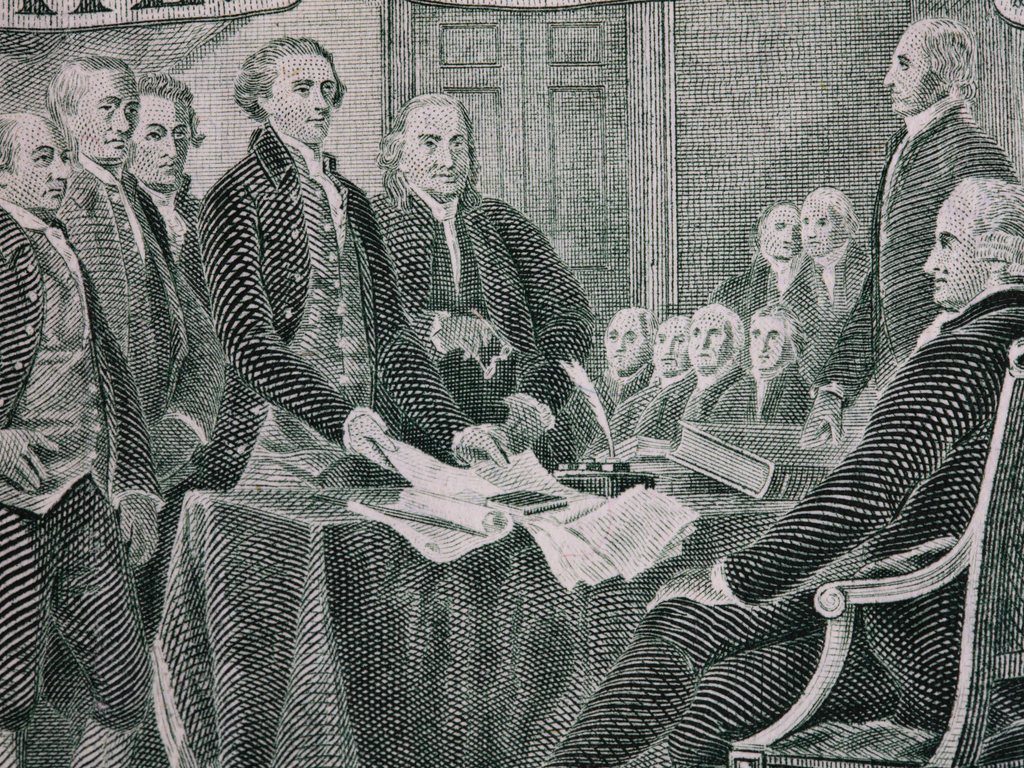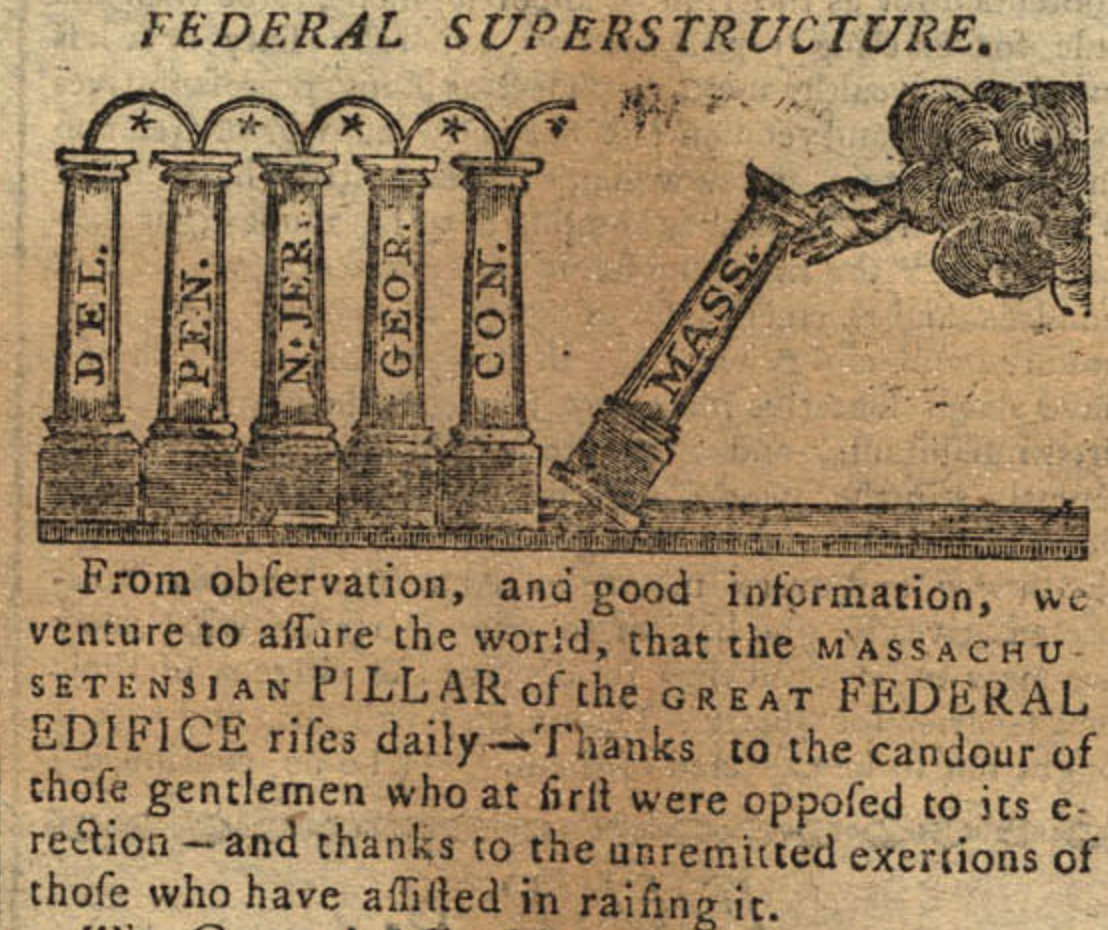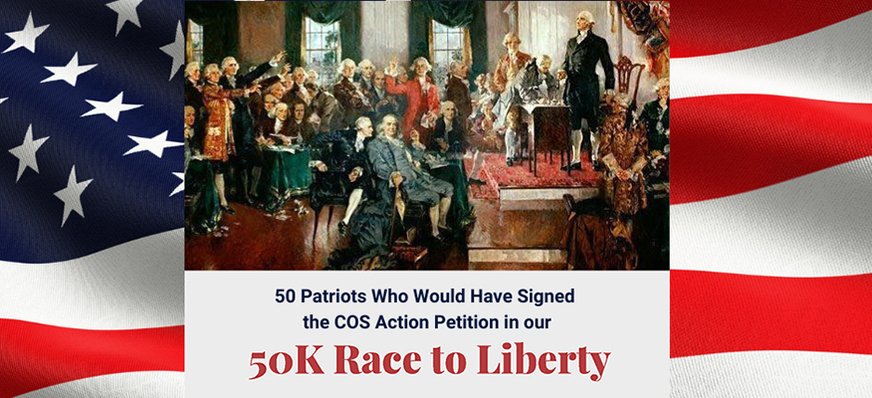Perhaps they would say they foresaw the day when Americans would need to stand up against government encroachment on the rights and freedoms of the people. The Founders themselves had to sever their bonds to a distant government that had become tyrannical. They left us Constitutional tools like the Article V Convention of States so we can actively steer clear of such dire straits. It's up to us to use them.

Thomas Jefferson and John Hancock are popularly known as the author and first signer of the Declaration of Independence, respectively. The famous John Trumbull painting depicts Jefferson and the Committee of Five presenting the Declaration to John Hancock, President of the Continental Congress. Earnest men in troubled times, they knew they were conspiring in treason against the Crown of England. In signing the Declaration, they were signing their death warrant. Regarding his signature, prominent on the Declaration, Hancock said “The British ministry can read that name without spectacles; let them double their reward.”
Such men might wonder at the fear some citizens now express at the simple act of signing a petition to exercise their rights under Article V of our Constitution.

After the revolution had been won, and the Articles of Confederation shown wanting, Jefferson and Hancock came together again in their wariness of the Federalist approach of a new Constitution. The Anti-Federalists looked at the newly drafted constitution as being too centralized, it's proposed court a danger to the very existence of the states, and that it woefully lacked protections for individual rights.
In fact, as Federalists and Anti-Federalists debated, the outcome of the 1788 Massachusetts convention on ratifying the new Constitution was in serious doubt. Without Massachusetts' ratification, the new union of states could fail. The tide changed when John Hancock, now Governor of the Commonwealth and president of the ratification convention, recommended amendments to the new Constitution, including a Bill of Rights. Anti-Federalists now had a vehicle to carry their concerns forward, and after Samuel Adams spoke in favor of what is now known as the "Massachusetts Compromise" the state convention went on to ratify the Constitution.

Thus, Americans with dramatically different views and visions of their country convened to discuss the major issues of the day and propose solutions to the problems they faced. And some even changed their minds after all sides forcefully presented their views in debate.
For example, James Madison, once a vocal opponent of the Bill of Rights, took up its cause, and prepared and relentlessly pushed for the constitutional amendments. In drafting the amendments, he drew on the Virginia Declaration of Rights, written by George Mason and also looked to by Thomas Jefferson when drafting the Declaration of Independence.
Jefferson and Hancock were active participants in the affairs of their day. They understood that governments are composed of men, and that the failings, passions, and excesses of men must be governed. Having lived under tyrannical rule, they were well aware how government appetites grow when left unchecked.
Of course the author of the Declaration of Independence and the President of the Second Continental Congress would call for a Convention of States in our current day.
Today the Republic faces great problems, yet we still benefit from the efforts of the Founders. Thanks to them, petitioning the government is a recognized and protected right. In Article V of the Constitution, we have the tools to legally address and correct the excesses of a bloated, overreaching government slouching its way into tyranny.
To maintain and grow our liberty and prosperity, you don't have to risk everything like Jefferson, Hancock, and other Revolutionary leaders did to secure it in the first place. But to keep our republic, you have to get active lest the natural course of events takes its toll.
Sign the petition calling for an Article V Convention of States, get active in your local civil affairs, and pledge to personally ask one or two or more people to sign the petition each and every week.
The Ratification of the US Constitution in Massachusetts. The Massachusetts Historical Society
Eight basic facts about the Bill of Rights. The National Constitution Center
The Bill of Rights, How did it happen? The National Archives


